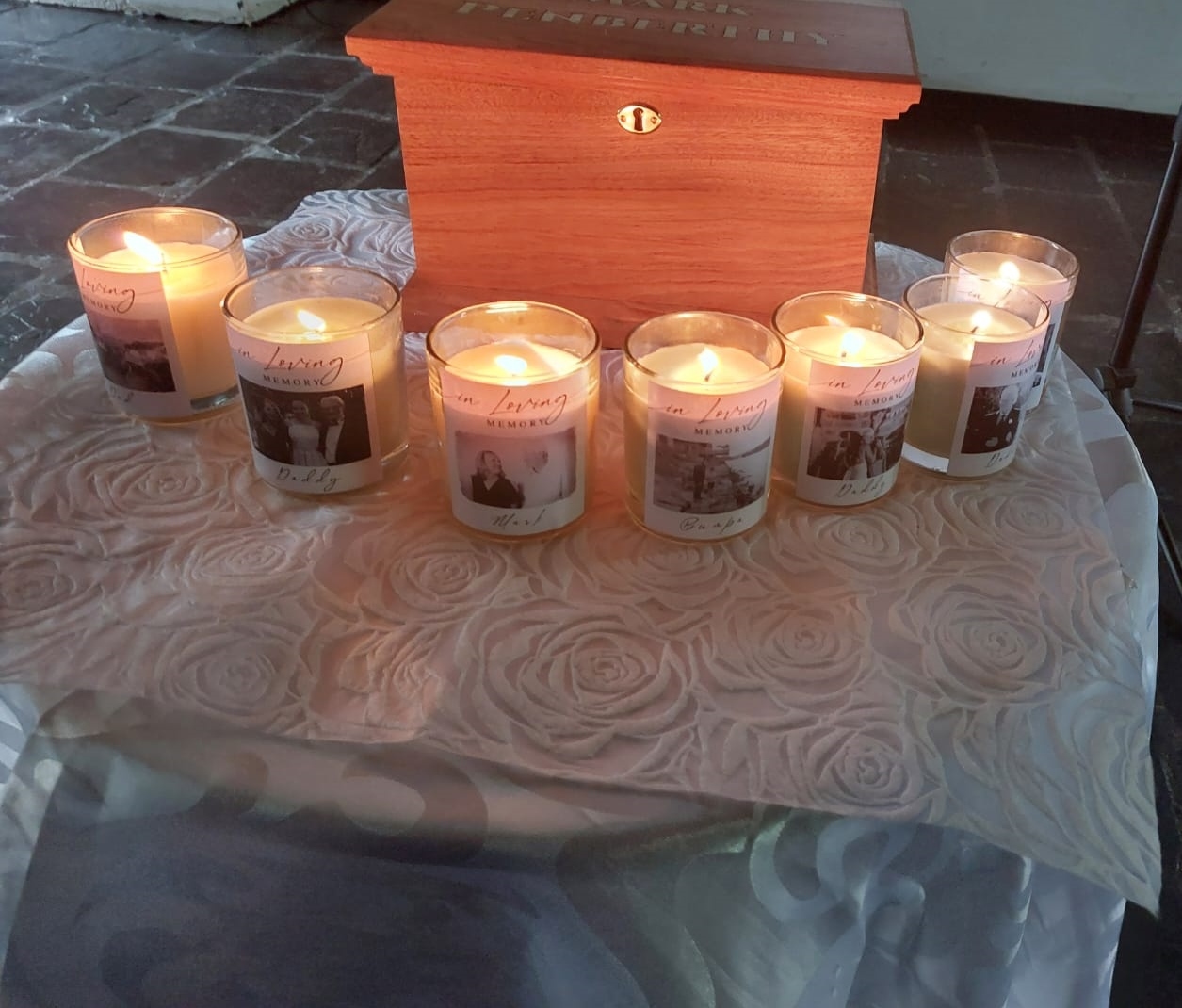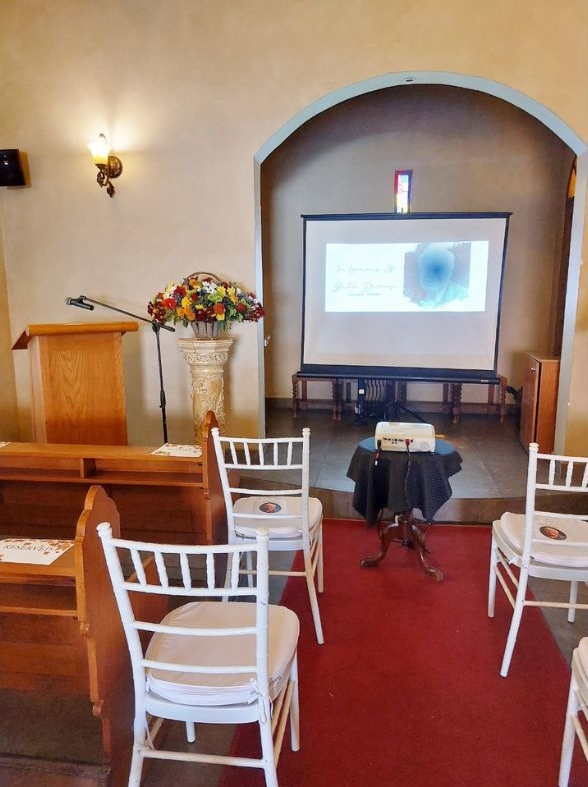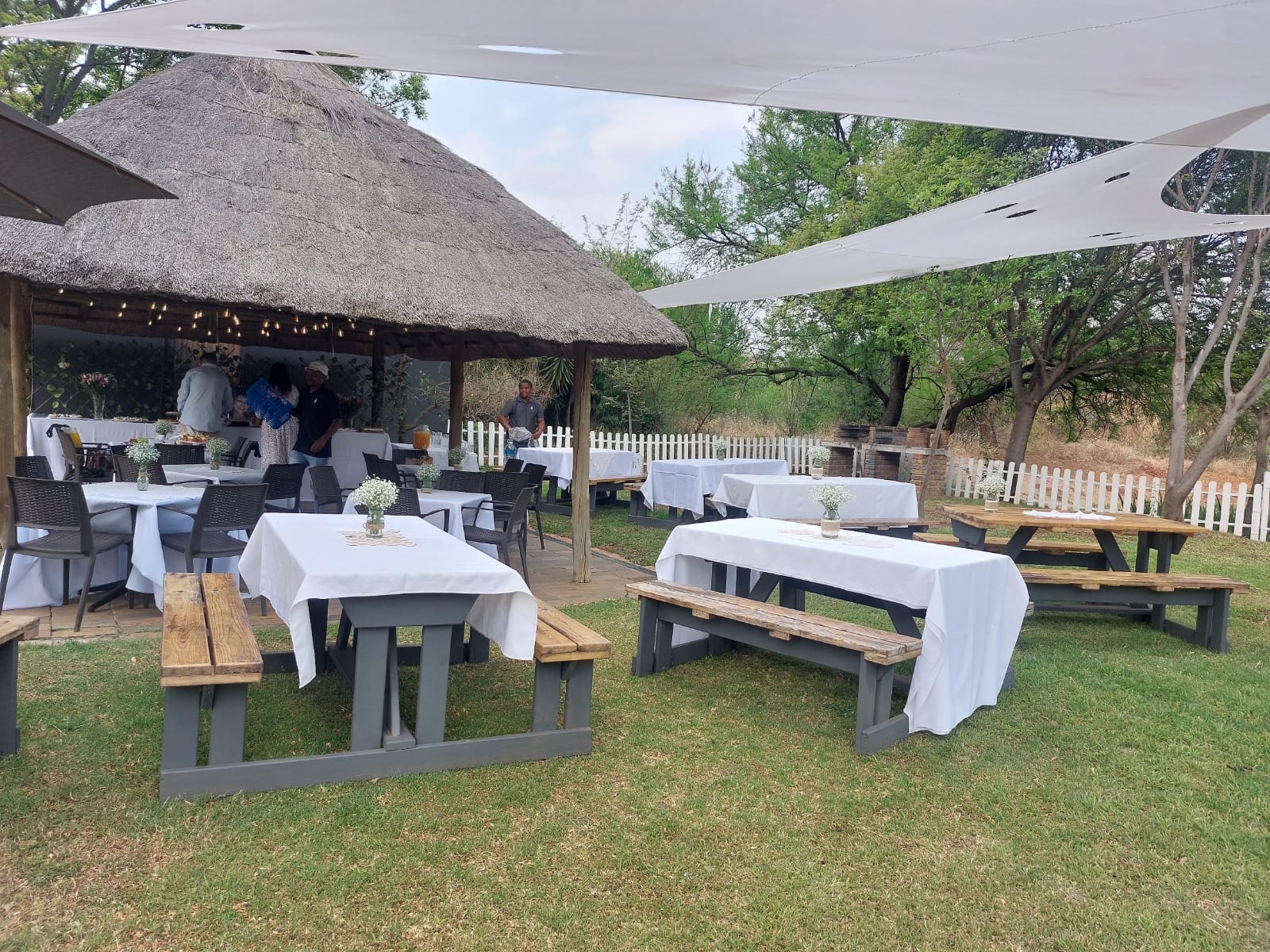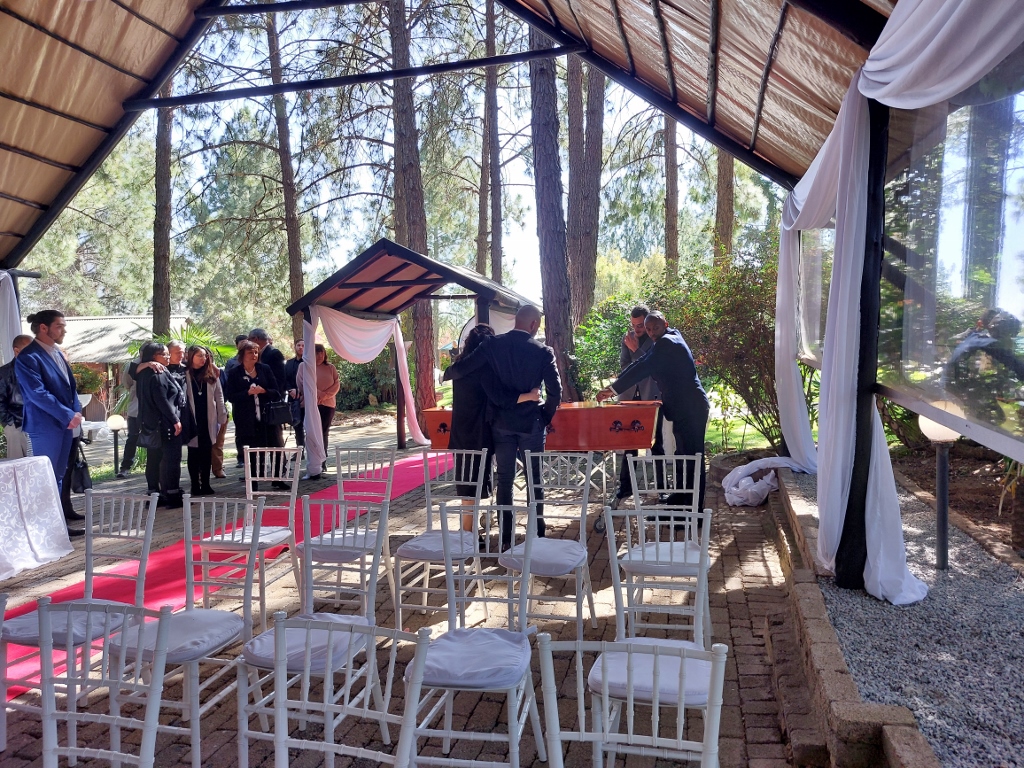People ask about how an officiant creates a non-religious funeral ceremony. Vanessa Bower from Wordways Ceremonies offers non-religious funerals, celebration of life and memorial ceremonies. She follows this process.
How we create a funeral ceremony
The funeral officiant meets with the person who contacted her on behalf of the family. It is good if she can meet more than one family member or close friends at the interview, as this gives her different perspectives on the deceased. She uses an interview checklist so that she can gather all the information that she needs.
If it is necessary she can conduct the interview online. Sometimes the family members are in different places, so the celebrant cannot meet them all in one place.

We call this a celebration of life ceremony and so we must be able to tell the story of that person’s life, as well as create a portrait. There’s the biographical information about where and when the person was born, something about their family, where they were educated and the kind of work that they did. The celebrant asks about relationships, marriages where appropriate and details about children, if the deceased had any.
She also asks about charitable works, hobbies and interests. The family talks about achievements. The officiant wants to know about their personality as well.
The funeral officiant gets the details of their death and checks if the family wish to thank anyone who cared for the deceased.

The details of the non-religious ceremony
Then they discuss the ceremony itself. They need to establish how long the family would like the ceremony to be. She asks about the choice of readings and music.
If there are no requests from the deceased or from the family, she can suggest readings. These can be about grief and loss, but also can reflect the loved one’s interests, work or hobbies.
She will find out if there will be other speakers and if someone else is delivering a eulogy. Other speakers will be distributed throughout the ceremony.
Sometimes members of the family or close friends write something, but feel unable to read it. They ask the celebrant to read it.

Families often decide to have a slide show during the ceremony, showing photos of their loved one at different stages of life. (See here and here for different rituals to follow during funerals or memorials.)
Sometimes the family would like some sort of activity during the ceremony, such as lighting special candles or people putting flowers on the coffin if it is present in the room.
The officiant then brings the ceremony to a conclusion.
Seven Frequently Asked Questions about Non-Religious Funerals in South Africa
Based on research and understanding of the South African context, here are 7 frequently asked questions about non-religious funerals in South Africa:
What is a non-religious funeral and how does it differ from a traditional religious service?
A non-religious funeral focuses on celebrating the life of the deceased without religious elements like prayers, hymns, or references to an afterlife. Instead of being conducted by a priest or rabbi or imam, the aim is to focus on the person who had died and the life they led, with personal stories, memories, and secular readings taking centre stage.
Who can conduct a non-religious funeral service?
The funeral celebrant could be anyone the family deems proper to lead the ceremony. It might be a family member or a respected member of the community. However, many families choose to work with professional secular celebrants who are trained to create meaningful, personalised ceremonies.
Are non-religious funerals legally recognised in South Africa?
Yes, non-religious funerals are perfectly legal in South Africa. There is no law regarding end-of-life ceremonies, so the officiant does not need to be qualified or registered.
Where can a non-religious funeral be held?

Families hold non-religious funerals in South Africa at various venues, including funeral homes, community centres, family homes, gardens, or other meaningful locations. The choice of venue is entirely up to the family and what feels most appropriate for their loved one.
Can we choose and play music at a non-religious funeral?
Yes, music forms an important part of a celebration of life ceremony. Music is usually played while people are arriving. We often pause in the middle of the ceremony for a moment pf reflection, while a special piece of music is played. We use this time to think about the deceased. Then we play music at the end of the ceremony.
Can we include some religious elements in a non-religious funeral?
Absolutely. Many families choose to blend elements, perhaps including a prayer for religious family members or a favourite hymn that held special meaning for the deceased, while keeping the overall service secular and celebratory of the person’s life.
What typically happens during a non-religious funeral service?
A non-religious funeral usually includes eulogies from family and friends, readings of poems or meaningful texts, music that was significant to the deceased, sharing of memories, and sometimes symbolic acts like lighting candles or releasing balloons. The celebrant tailors the service to reflect the person’s life and values.

Conclusion
These questions reflect the practical concerns families have when considering a non-religious approach to honouring their loved ones while still creating a meaningful and dignified farewell ceremony.
